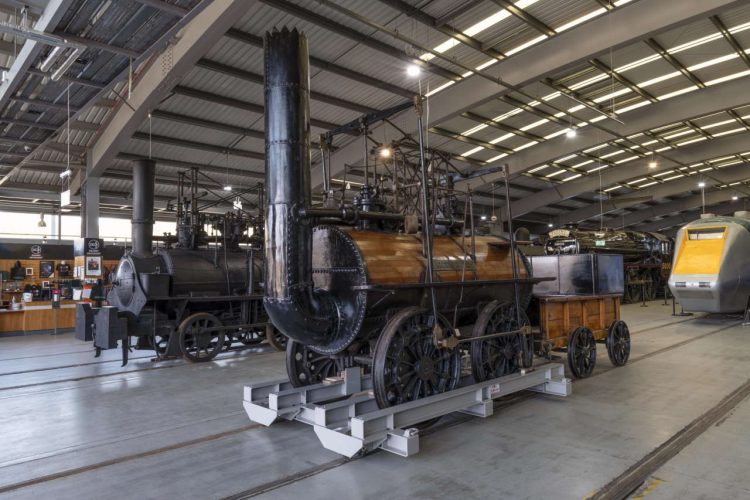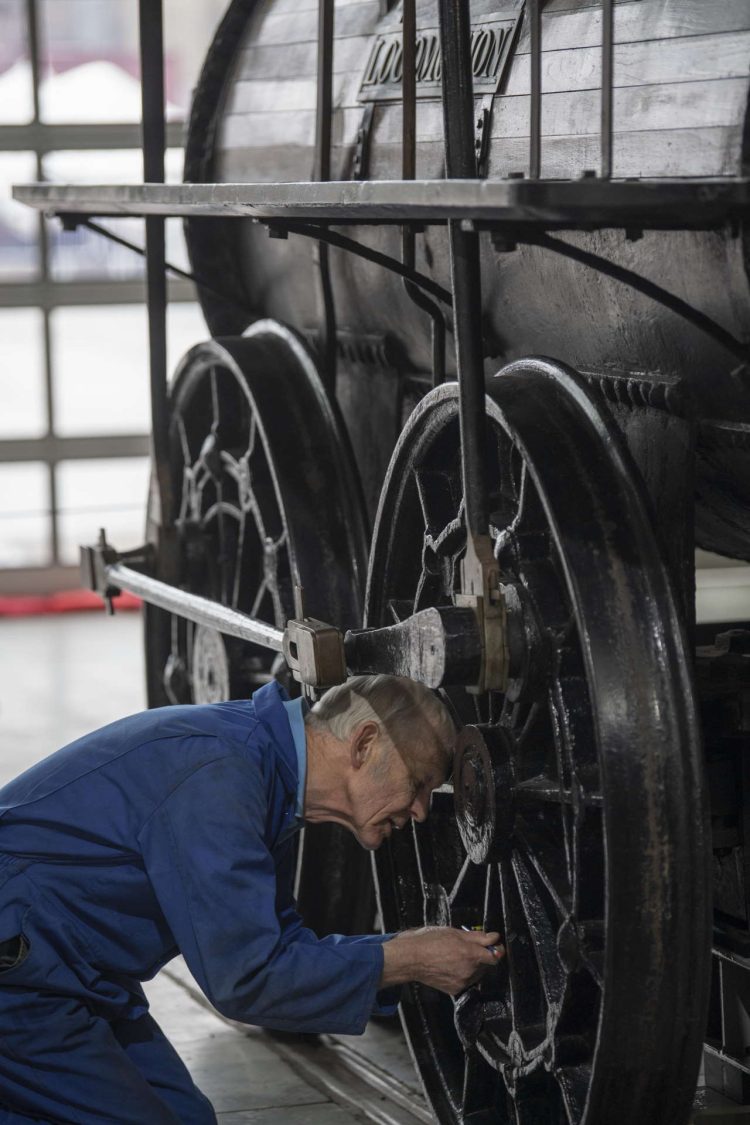To celebrate the 200th anniversary of the world’s first passenger train, which ran on 27 September 1825, the rail industry has announced that it will mark the bicentenary with a year-long programme called Railway 200.
The world’s first passenger train ran on 27 September 1825 when George Stephenson’s Locomotion No.1 carried over 400 people along the Stockton and Darlington Railway, drawing crowds of up to 40,000 people and marking the birth of passenger train travel.

For the last 200 years, rail has been the foundation of our history and links lives, communities, and cultures, whilst leading the way towards the future. A logo for the celebrations has been unveiled that symbolises rail as being a continuous line connecting the country, and a website is available at www.Railway200.co.uk that explains how anyone can support Railway 200.

Railway 200 has been developed by a cross-industry partnership, and is due to start in January 2025. It aims to inspire the next generation with a national public engagement programme offering a wide range of activities, initiatives, as well as commemorative products.
Railway 200 will be a celebration of rail’s remarkable past, its importance today, and look forward to its future. Planning is underway for an exhibition train developed in partnership with the National Railway Museum and Porterbrook which will travel around the country to take Railway 200 to people throughout Great Britain.
The train will include exhibitions and interactive elements aimed at young people and their families, and will help to raise awareness about the bicentenary and the opportunities available through careers in Science, Technology, Engineering and Mathematics (STEM).
The number of organisations taking part in Railway 200 reflect the diverse nature of the programme, including: Network Rail, Stockton & Darlington Bicentenary Festival, Great British Railway Transition Team, National Skills Academy for Rail, the Rail Delivery Group, Rail Forum, HS2 Ltd, the Railway Industry Association, the Heritage Railway Association, the National Railway Museum, and the Community Rail Network. Railway 200 is also involving partners from outside the rail industry to highlight the influence that the railway has had on culture, art, and society.
A partnership has also been established with Stockton & Darlington Bicentenary Festival (S&DR200) which is a 9-month international festival, and further information about the festival can be found at www.sdr200.co.uk.
Peter, Lord Hendy of Richmond Hill, Chair of Railway 200 and Network Rail said: “The world changed forever in 1825 and the 200th anniversary of this first passenger train journey is an historic opportunity to reset the public’s relationship with rail. It is our chance to present the railway as a forward thinking, digital, industry and as an attractive career option for young people and for people from many different backgrounds.
For Railway 200 to reach its full potential, we must harness the knowledge and efforts of the whole industry, so I hope you will join us in creating a programme of celebrations which will recognise this great British achievement, the first public passenger train in the world, while inspiring a new generation to take our innovative railway far into the future.”
Darren Caplan, Chief Executive, Railway Industry Association said: “It is hard to overstate the benefits that the railway has brought, and continues to bring, not just to the UK, but also globally, since 1825. Rail networks don’t just keep people connected, they also play a crucial role in spurring economic growth, creating jobs, boosting sustainability, and bringing together local communities.”
Jacqueline Starr, Chief Executive of Rail Delivery Group, said: “The world’s first passenger train changed transport forever, and the anniversary of that journey is a chance for the rail industry to celebrate our history and look to the future. Railway 200 is a chance to show the world that the innovative spirit of 1825 is still very much alive today, with a programme of activities that draws upon the creativity and talent that exists across the railway.”
Jools Townsend CEO, Community Rail Network said: “As we move into the next 200 years, our railways need to play a growing role in tackling the climate crisis and enabling sustainable and inclusive economic development. Working in partnership with local communities is fundamental to this. We’re looking forward to celebrating the inspiring work taking place across Britain’s thriving community rail movement as part of Railway 200.”
Neil Robertson, National Skills Academy (Rail) said: “Not only will Railway 200 showcase how the railway has played a pivotal role in shaping the nation’s history and development over the last two centuries, it will leave a lasting legacy, helping to inspire a new generation of young people to choose the railway as their career choice. NSAR is proud to be associated with Railway 200.”
Judith McNicol, Director of the National Railway Museum said: “The bicentenary of the Stockton and Darlington Railway is a key railway anniversary of real international importance. It is doubly significant for the National Railway Museum, as the date also marks our 50th birthday. Through a calendar of events, programming and displays, we will help visitors to Locomotion in Shildon and the National Railway Museum in York to share in the exciting centenary celebrations.”
Elaine Clark, Chief Executive Officer, Rail Forum said: “Railway 200 provides a fantastic opportunity to showcase all that the railway has done over the last 200 years, from supporting industrial development and economic growth to encouraging social mobility and connecting communities. But even more importantly, it presents a unique opportunity to highlight the importance of rail for our future; providing sustainable movement of people and goods and acting as a catalyst for inspiring the next generation of rail professionals.”






Responses